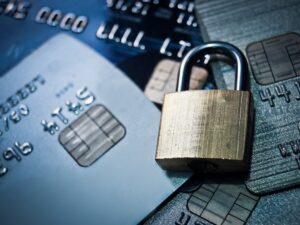In today’s digital world, identity theft is more common than ever. From stolen credit card details to full-blown financial fraud, cybercriminals and scammers find new ways to exploit personal information daily. Whether you’re a business owner, a real estate investor, or just someone who values their financial security, knowing how to prevent and recover from identity theft is crucial.

What is Identity Theft?
Identity theft occurs when someone uses your personal information—such as your name, Social Security number, or financial details—without your permission to commit fraud or other crimes. This can lead to unauthorized transactions, fraudulent accounts in your name, and even legal trouble if the thief impersonates you in a criminal act.

Common Types of Identity Theft:
- Financial Fraud: Stolen credit card details or unauthorized loans in your name.
- Tax Identity Theft: Someone files a tax return using your Social Security number to steal refunds.
- Medical Identity Theft: Criminals use your identity to get medical treatment, leaving you with the bills.
- Criminal Identity Theft: A thief provides your identity to law enforcement when caught committing a crime.
- Synthetic Identity Theft: Fraudsters create a fake identity using your real and fake information.

How to Prevent Identity Theft
1. Protect Your Personal Information
- Avoid sharing sensitive details (Social Security number, passwords, etc.) unless necessary.
- Shred documents with personal information before disposing of them.
- Be cautious about sharing information over the phone or online, especially with unsolicited calls or emails.
2. Strengthen Online Security
- Use strong, unique passwords for each account and a password manager to keep track.
- Enable two-factor authentication (2FA) on all financial and personal accounts.
- Avoid using public Wi-Fi for sensitive transactions unless you have a VPN.
3. Monitor Your Financial Accounts Regularly
- Set up alerts on bank accounts and credit cards to notify you of suspicious activity.
- Check your credit reports for unusual accounts at AnnualCreditReport.com.
- Review medical and insurance statements for unauthorized claims.
4. Be Aware of Phishing Scams
- Never click on links in unexpected emails or messages requesting personal details.
- Double-check email addresses before responding to requests that appear to be from banks or government agencies.
- Avoid sharing sensitive data on social media that could be used for security questions.
5. Secure Your Devices
- Keep your computer and phone software up to date.
- Use antivirus software and a firewall for additional security.
- Lock your devices with strong passcodes or biometric authentication.

What to Do If You’re a Victim of Identity Theft
1. Report the Fraud Immediately
- File a complaint with the Federal Trade Commission (FTC) at IdentityTheft.gov.
- Report tax-related identity theft to the IRS using Form 14039 (Identity Theft Affidavit).
- Contact local law enforcement and file a police report.
2. Place a Fraud Alert or Credit Freeze
A fraud alert makes it harder for identity thieves to open accounts in your name. Contact one of the three major credit bureaus (they will inform the others):
- Experian: 1-888-397-3742
- Equifax: 1-800-525-6285
- TransUnion: 1-800-680-7289
For stronger protection, a credit freeze completely locks your credit file from new inquiries.
3. Dispute Fraudulent Transactions
- Contact banks, credit card companies, or lenders and report unauthorized charges.
- Close compromised accounts and request new account numbers.
- Work with creditors to remove fraudulent accounts from your credit report.
4. Monitor Your Credit and Identity Moving Forward
- Keep checking your credit reports for any unusual changes.
- Consider an identity theft protection service like LifeLock, Identity Guard, or Experian IdentityWorks.
- Stay vigilant about scam emails, phone calls, and phishing attempts.

Final Thoughts
Identity theft is a growing threat, but with the right precautions, you can protect yourself from fraud. Taking proactive steps—like monitoring your financial accounts, securing your personal information, and reporting suspicious activity immediately—can make all the difference.
If you’ve been a victim of identity theft, act fast, report the crime, and take steps to restore your credit and identity. By staying informed and cautious, you can prevent future attacks and maintain control over your financial security.


